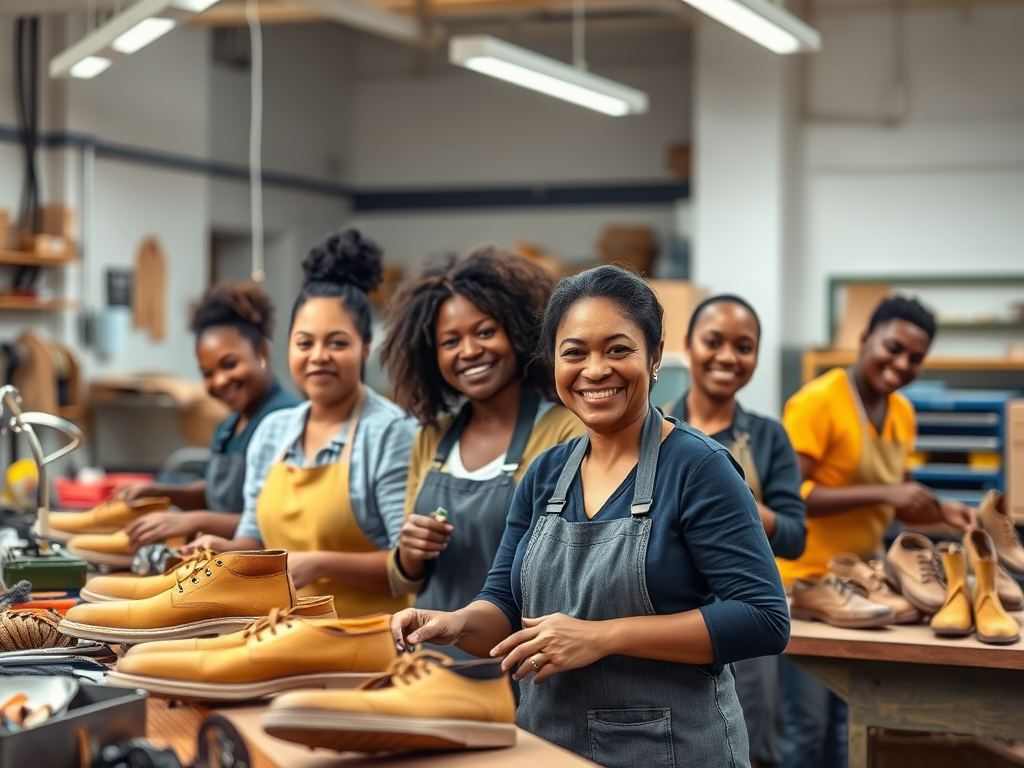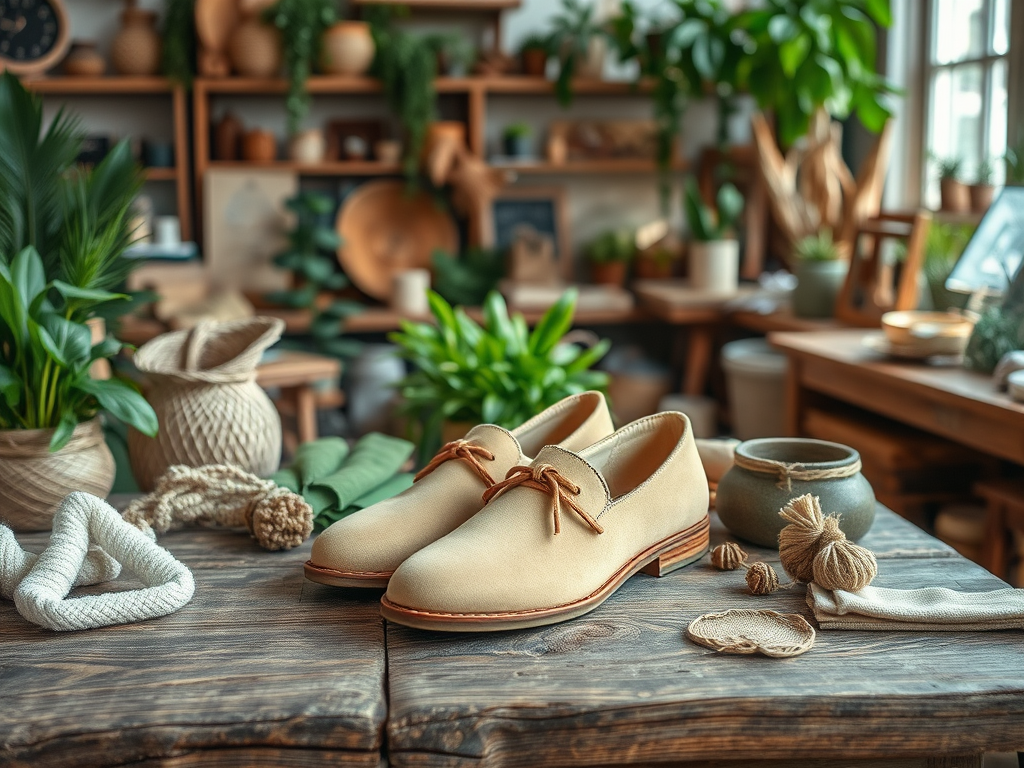The Importance of Choosing Shoes Not Made in Sweatshops
Every time we slip on a pair of shoes, we have a choice to make. That choice extends beyond aesthetics or comfort and dives deep into the realms of ethics and responsibility. In a world where consumer choices can significantly impact the lives of others, advocating for footwear made outside of sweatshops is an essential stand against exploitation. Just think about it: how often do we consider the human cost of the bargains we find? Are the shoes we wear walking on the backs of those who suffer for mere pennies? The truth behind shoe manufacturing is often hidden, and it’s time we shine a light on it.
Sweatshops, known for their exploitative labor practices, are established in countries where labor regulations are minimal or non-existent. They push the boundaries of human rights, subjecting workers to conditions that are both unsafe and unfair. It is in these settings that countless individuals are producing shoes for global markets, often without receiving fair compensation for their efforts. As consumers, we hold the power to challenge and change these practices by choosing to support ethical brands. This isn’t just a minor decision; it’s an opportunity to make a meaningful difference in the world.
Understanding Sweatshops: A Global Issue

Sweatshops are factories that exploit workers by paying them meager wages, enforcing unsafe working conditions, and often requiring long hours with little rest. This issue primarily affects developing countries, where labor laws may be weak or unenforced. Many workers, seeking better lives, find themselves in these dire circumstances, where their dreams are overshadowed by harsh realities. Sweatshops thrive on low production costs and high profit margins, often at the expense of basic human dignity. The fact that this widespread issue continues to flourish is a stark reminder of the urgency for change. By understanding what constitutes a sweatshop, we Equip ourselves as informed consumers, ready to advocate for better practices.
In sweatshops, workers face numerous challenges that many of us take for granted: job security, safety, and fair wages. Here are some alarming facts that highlight the stark reality of this global issue:
- Low Wages: Many workers earn less than the living wage.
- Dangerous Conditions: Lack of safety regulations can result in severe injuries.
- Child Labor: Some sweatshops employ minors, depriving children of education and a childhood.
Such conditions not only affect the workers but also ripple through their communities, creating a cycle of poverty and reliance on exploitative labor. When we choose to buy shoes made under such conditions, we inadvertently support a system that thrives on injustice. The human cost of our purchasing decisions is staggering, and it’s a responsibility we cannot ignore.
The Environmental Impact of Fast Fashion

The production of shoes in sweatshops often coincides with fast fashion practices, which have significant environmental consequences. The reality is that our consumer habits not only affect people but also the planet we inhabit. Fast fashion encourages the mass production of low-cost items, leading to an astonishing amount of waste and pollution. Disposable footwear, designed to be worn for a short period before discarded, has increasingly become a significant environmental concern. As consumers, we become unwitting participants in this harmful cycle, further impacting our ecosystems.
Here are a few ways in which the production of shoes contributes to environmental degradation:
- Chemical Runoff: Toxic substances from shoe production can contaminate local water supplies.
- Landfill Issues: Fast fashion leads to an increase in disposable footwear, contributing to overflowing landfills.
- Carbon Footprint: The mass production processes involve significant energy consumption, resulting in higher greenhouse gas emissions.
It’s imperative that consumers recognize the environmental cost associated with the trend of fast fashion footwear. By choosing shoes that align with sustainable practices, we not only promote better labor conditions but also contribute to the preservation of our planet.
| Factor | Sweatshops | Ethical Brands |
|---|---|---|
| Worker Treatments | Exploited and Unsafe | Respected and Safe |
| Environmental Impact | High Pollution | Lower Footprint |
| Product Longevity | Cheap and Disposable | Durable and Lasting |
Supporting Ethical Brands
Choosing shoes made by ethical brands can lead to significant positive changes that ripple through communities. These brands are committed to fair wages, safe working conditions, and environmentally friendly practices. While it might be tempting to buy cheaper shoes, consider the long-term implications of those choices. Supporting ethical brands can have a transformative impact on both lives and the environment. By funneling our financial support to companies that prioritize morality over profit, we can advocate for human rights effectively. Opting for quality, sustainability, and fairness in our footwear choices enables consumers to be part of a bigger movement.
When selecting shoes, here are some key factors to consider:
- Fair Labor Practices: Brands that offer fair wages and safe working conditions.
- Sustainable Materials: Look for those that use eco-friendly and recycled materials.
- Transparency: Brands should have clear information about their supply chain and production processes.
By focusing on these elements, consumers can make informed choices that resonate with their values. This not only fosters a sense of responsibility but also promotes change across the industry.
The Benefits of Ethical Footwear
Purchasing shoes that are not made in sweatshops has several advantages beyond just ethics. It’s an opportunity to align your values with your purchasing habits, providing personal satisfaction while also supporting broader societal change. One significant benefit is the support it provides to local economies. When consumers choose ethical brands, they often contribute to the livelihood of local artisans and communities. This shift in purchasing power can lead to job creation and economic growth, especially in areas where such opportunities are scarce. Supporting ethical brands establishes a relationship built on trust and respect, allowing consumers to feel good about their choices.
By buying from companies that prioritize ethical practices, consumers can help support:
- Local craftsmanship and small-scale production.
- Economic growth in communities that prioritize fair labor practices.
- Innovation in sustainable practices as brands seek to improve with consumer demand.
Embracing ethical footwear not only aids individuals but also uplifts communities. It is a call to action for responsible consumerism that resonates globally.
Conclusion
Choosing shoes not made in sweatshops is not just a personal choice, but a powerful statement against exploitation and environmental degradation. As we navigate the complexities of modern consumer culture, we have the ability to influence change with our purchasing decisions. By being mindful of where and how shoes are made, we’re contributing to a larger movement towards ethical and sustainable fashion. Every pair of shoes we purchase can reflect our values and commitment to human rights. Together, we can reshape the fashion industry, shining a light on the importance of ethical responsibility. Let’s take a thoughtful step forward, for ourselves, and for future generations.
Frequently Asked Questions
- What defines a sweatshop? A sweatshop is defined by poor working conditions, low wages, and often illegal labor practices.
- How can I identify ethical shoe brands? Look for brands that are transparent about their manufacturing process, offer fair wages, and use sustainable materials.
- Why is it important to stop supporting sweatshops? Stopping support for sweatshops is crucial to protect workers’ rights, improve working conditions, and reduce environmental harm.
- Are ethical shoes more expensive? Ethically made shoes may have a higher upfront cost, but they often offer greater durability and quality, making them a better long-term investment.
- Can I make a difference as a consumer? Yes, your purchasing decisions can influence brands to adopt fair labor practices and shift away from exploitative business models.
